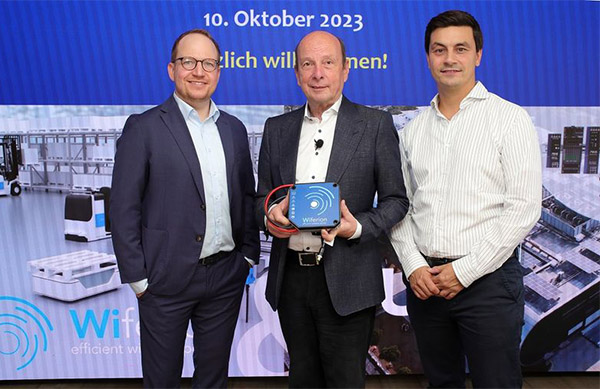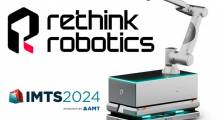PULS GmbH last week announced that it has acquired Wiferion GmbH to create the PULS Wireless business unit. It will combine Wiferion's expertise in wireless charging of mobile robots with the engineering resources, global production, and application support of PULS, said the company.
“As a pioneer, Wiferion has successfully developed inductive charging to maximize the performance of industrial electric vehicles such as automated guided vehicles [AGVs], autonomous mobile robots [AMRs], and forklifts, and thereby gained the leading market position,” said Bernhard Erdl, founder, managing director, and owner of PULS, in a release. “With the additional capabilities of PULS, we want to make this system the global market standard and will invest significantly.”
Founded in 1980, PULS said it develops and manufactures power supplies and supplementary units for industrial applications. The Munich-based company employs around 1,700 people worldwide.
PULS manufactures all of its products at its own facilities in in Chomutov, Czech Republic; Suzhou, China; and Drebach, Germany. It asserted that its power supplies “regularly set benchmarks with their high efficiency values, compact design, durability, and reliability.”
“For users, such outstanding quality means low energy consumption, more space in the cabinet, and high system availability,” added PULS.
Wiferion promises to eliminate downtime
Freiburg, Germany-based Wiferion said it is a leading provider of mobile, wireless power AGVs, AMRs, and industrial trucks (FFZs). The company claimed that the flexible and scalable integration of its products can eliminate unnecessary machine downtime and maintenance- and cost-intensive wired charging.
Wiferion added that users can sustainably increase their fleet utilization and efficiency by up to 32%. It said it has sold more than 8,000 etaLINK systems to numerous companies in more than 30 countries in the logistics, industrial, and automotive sectors.

At ProMat 2023 in March, Wiferion entered the U.S. market.
“PULS employs more than 100 of the best developers in the industry and has global production and sales locations that take our charging technology and scalability to a new level,” said Julian Seume, former chief sales and marketing officer of Wiferion.
“Especially in the area of new product development and application support, we are now in a much stronger position and can offer our customers an even better service,” Seume said. He and Matthieu Ebert form the management team of the new PULS Wireless unit.
PULS adds support for manufacturing, logistics
PULS noted that it “has always been at the forefront of innovation in power supply technology.” It did not specify the terms of the acquisition but said it will keep PULS Wireless' operational team in Freiburg.
“This new wireless charging technology will provide unprecedented fleet efficiency, and is maintenance-free, reliable, and flexible,” the company said. “It will become an integral part of any automated production, helping companies to increase productivity while reducing their day-to-day costs.”
“By adding Wiferion’s technology to the already extensive PULS portfolio, we will be able to offer future-proof solutions to the manufacturing and intralogistics industries with our FIEPOS (Field Power Supply) and inductive charging systems which will revolutionize these markets,” stated PULS.
The global market for wireless charging of vehicles and robots could expand from $18.21 billion in 2022 to $71.47 billion by 2030 at a compound annual growth rate (CAGR) of 15.8%, according to Next Move Strategy Consulting. It mainly attributed that growth to electric vehicles, but consumer electronics and robotics were also contributors.
Fortune Business Insights was more bullish, predicting a CAGR of 25.8%, from 22.17 billion in 2022 to $129.02 billion by 2030.
Article topics
Email Sign Up
















